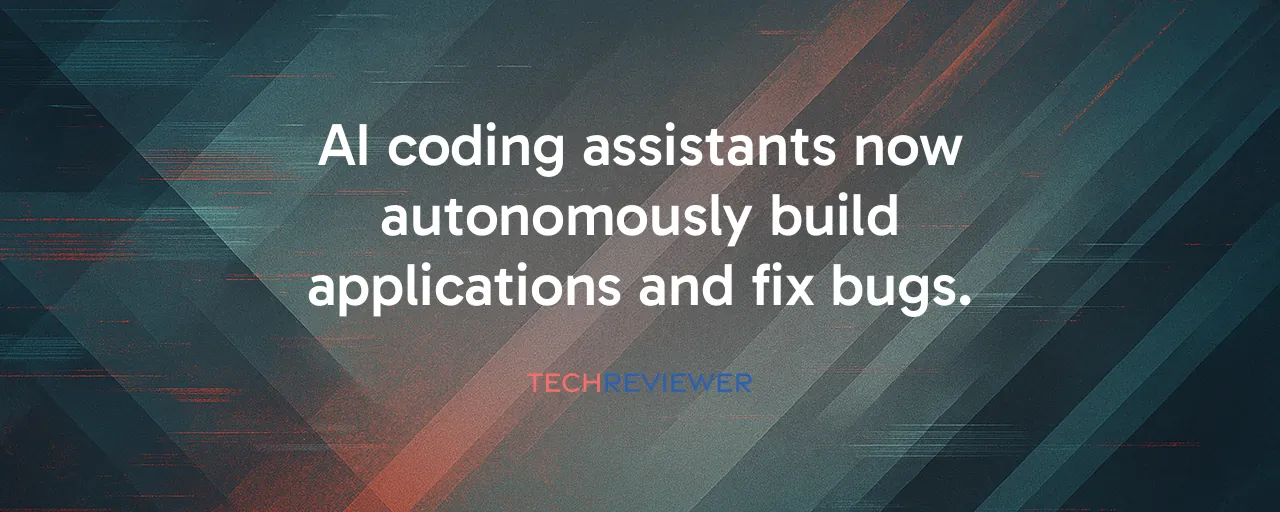A New Era for Software Development
In 2025, coding isn't just about typing lines of code anymore. Developers are leaning on AI-powered assistants like Anthropic's Claude Code and OpenAI's Codex CLI to handle everything from quick bug fixes to building entire applications. These tools, which act like autonomous coding partners, have sparked a heated race among tech giants to win over programmers. With the AI coding assistant market projected to soar from 5.5 billion dollars in 2024 to 47.3 billion dollars by 2034, the stakes are high. But what's driving developers to pick one tool over another, and why are some, like a user who spent over 70,000 dollars a year on Claude Code, switching to Codex CLI?
The shift reflects a broader transformation in software development. These aren't just autocomplete tools like GitHub Copilot; they're sophisticated agents that can read repositories, write complex code, and even submit pull requests. Claude Code, launched in May 2025, initially dazzled developers with its ability to refactor legacy code and prototype applications. Meanwhile, Codex CLI, which hit the scene in April 2025, has gained momentum with its speed and flexibility. Both promise to boost productivity, but their differences are reshaping how developers work.
Claude Code's Strengths and Stumbles
Claude Code, built on Anthropic's Claude 3.5 and 3.7 Sonnet models, shines when it comes to understanding complex codebases. In tests on a 100,000-line React application, it modernized class components to hooks with 94 percent accuracy, outperforming Codex CLI's 81 percent. Freelance programmers and enterprise teams alike praise its knack for producing clean, modular code and detailed documentation, especially for intricate refactoring tasks. One developer used Claude Code to build a full e-commerce platform in weeks, a feat that would have taken months without AI assistance.
However, Claude Code hit rough waters in 2025. Between August and September, three infrastructure bugs caused intermittent performance dips, frustrating users who relied on its precision. Some reported the tool giving up on tough problems, suggesting off-the-shelf solutions instead of custom fixes. Despite Anthropic's quick fixes and a web-based version launched in October 2025, which introduced secure sandboxing for safer coding, the damage lingered. Developers began exploring alternatives, especially as OpenAI rolled out a major upgrade to Codex CLI.
Codex CLI's Rise to Prominence
OpenAI's Codex CLI, powered by the GPT-5-Codex model, has emerged as a favorite for its speed and scalability. With response times averaging 1.2 seconds compared to Claude Code's 1.8 seconds, it feels snappier for developers juggling multiple tasks. Its ability to handle resource-heavy operations, like processing 50GB machine learning pipelines in 12 minutes, makes it a go-to for enterprise IT teams. One company reported using Codex CLI to streamline infrastructure-as-code generation, cutting deployment times significantly.
The tool's local execution with cloud coordination gives developers more control, and its open-source foundation invites community tweaks. However, early versions had bugs, and some users found the command-line interface less intuitive than Claude Code's web option. Still, OpenAI's September 2025 upgrade, which added visual analysis and adaptive resource management, addressed many pain points, making Codex CLI a formidable competitor.
Lessons From the Field
Real-world use cases reveal what these tools can and can't do. Claude Code's e-commerce platform success shows how AI can accelerate prototyping, letting developers build functional apps quickly. But the same developer later faced maintenance headaches, as unexamined AI-generated code led to scalability issues. This underscores a key lesson: AI tools excel at speed but demand human oversight to catch subtle bugs or ensure long-term maintainability.
On the enterprise side, Codex CLI's ability to handle massive datasets highlights its scalability. Yet, research shows AI-generated code has defect rates four times higher than human-written code, with issues like SQL injection flaws slipping through. Enterprises using Codex CLI for infrastructure tasks learned to pair it with rigorous code reviews, blending AI efficiency with human precision. These cases emphasize that AI coding tools amplify productivity but don't replace critical thinking.
Navigating the Trade-Offs
Choosing between Claude Code and Codex CLI depends on a developer's needs. Freelancers tackling complex refactors may prefer Claude Code's architectural finesse, while enterprise teams managing heavy workloads lean toward Codex CLI's speed and cost-effectiveness. Claude Code's web launch and sandboxing address security concerns, but Codex CLI's local execution appeals to those wary of cloud-based risks. Both tools struggle with massive codebases due to context window limits, requiring developers to break tasks into smaller chunks.
Cost is another factor. Codex CLI's pricing at 0.002 dollars per request often undercuts Claude Code's 20-dollar monthly Pro plan or higher API rates. However, enterprises must weigh integration challenges, as both tools require careful setup to mesh with existing workflows. Developers also face a learning curve in crafting precise prompts to get the best results, a skill that's becoming as vital as coding itself.
What's Next for AI Coding Assistants
The race between Claude Code and Codex CLI is just the beginning. With 81 percent of developers using AI tools daily and 60 percent reporting at least 25 percent faster coding, adoption is skyrocketing. But challenges like security vulnerabilities, copyright uncertainties, and the need for human oversight remain. The industry is moving toward hybrid workflows, where AI handles routine tasks and humans focus on strategy and design.
Looking ahead, collaboration could shape the future. Standardizing prompt formats or sharing security best practices could benefit all players, from Anthropic to open-source communities. For now, developers must balance the thrill of AI-powered productivity with the responsibility of verifying its output. As one programmer put it, these tools are like a superpower but they still need a steady hand to wield them effectively.
